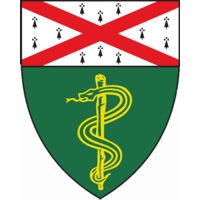Novel Agents in the Management of Pancreatic Adenocarcinoma: Phase I Studies
Abstract
Pancreatic adenocarcinoma has repetitively proved refractory to chemotherapy and biologic compounds with only a few drugs offering limited benefit. A number of novel regimens has been tested in phase I trials and reported recently in the 2011 American Society of Clinical Oncology (ASCO) Gastrointestinal Cancers Symposium. Specifically, a novel mitogen-activated protein kinase kinase (MEK) inhibitor, a connective tissue growth factor inhibitor, a coagulase factor VIIa inhibitor, as well as adenovirus delivery of herpes simplex virus thymidine synthase gene followed by anti-herpetic treatment have all proven to be safe in pancreatic cancer patients. Phase II trials will provide further evidence whether they can become clinically relevant in the future.
Image: Yale University School of Medicine. New Haven, CT, USA (logo).
Downloads
References
Hidalgo M. Pancreatic cancer. N Engl J Med 2010; 362:1605-17. [PMID 20427809]
Moore MJ, Goldstein D, Hamm J, Figer A, Hecht JR, Gallinger S, Au HJ, et al. Erlotinib plus gemcitabine compared with gemcitabine alone in patients with advanced pancreatic cancer: a phase III trial of the National Cancer Institute of Canada Clinical Trials Group. J Clin Oncol 2007; 25:1960-6. [PMID 17452677]
Kim R. FOLFIRINOX: a new standard treatment for advanced pancreatic cancer? Lancet Oncol 2011;12:8-9. [PMID 21050812]
Almoguera C, Shibata D, Forrester K, Martin J, Arnheim N, Perucho M. Most human carcinomas of the exocrine pancreas contain mutant c-K-ras genes. Cell 1988; 53:549-54. [PMID 2453289]
Mahadevan D, Von Hoff DD. Tumor-stroma interactions in pancreatic ductal adenocarcinoma. Mol Cancer Ther 2007; 6:1186-97. [PMID 17406031]
Kindler HL, Niedzwiecki D, Hollis D, Sutherland S, Schrag D, Hurwitz H, et al. Gemcitabine plus bevacizumab compared with gemcitabine plus placebo in patients with advanced pancreatic cancer: phase III trial of the Cancer and Leukemia Group B (CALGB 80303). J Clin Oncol 2010; 28:3617-22. [PMID 20606091]
Kasthuri RS, Taubman MB, Mackman N. Role of tissue factor in cancer. J Clin Oncol 2009; 27:4834-8. [PMID 19738116]
Tolcher AW, Bendell JC, Patnaik A, Papadopoulos K, Bellew KM, Cox DS, Xu Y, et al. A phase Ib study of the MEK inhibitor GSK1120212 combined with gemcitabine in patients with solid tumors: Interim results. J Clin Oncol 2011; 29(Suppl. 4):Abstract 278.
Heestand GM, Pipas JM, Valone F, McMullen AD, Gadea P, Williams D, Zhong M, et al. A phase I trial of the monoclonal antibody FG-3019 to connective tissue growth factor (CTGF) in locally advanced or metastatic pancreatic cancer. J Clin Oncol 2011; 29(Suppl. 4):Abstract 269.
Ramanathan RK, Gressler V, Shah S, Loury D, Hamdy A, Khorana A. Phase I/II study of PCI-27483, a coagulation factor VIIa (FVIIa) inhibitor in patients with advanced pancreatic cancer receiving treatment with gemcitabine. J Clin Oncol 2011; 29(Suppl. 4):Abstract 221.
Bloomston M, Marsh C, Walker J, Coyle W, Marx H, Tahiri S, et al. Phase I trial of gene-mediated cytotoxic immunotherapy in combination with chemoradiation for locally advanced pancreatic cancer. J Clin Oncol 2011; 29(Suppl. 4):Abstract 195.
Rinehart J, Adjei AA, Lorusso PM, Waterhouse D, Hecht JR, Natale RB, Hamid O, et al. Multicenter phase II study of the oral MEK inhibitor, CI-1040, in patients with advanced non-small-cell lung, breast, colon, and pancreatic cancer. J Clin Oncol 2004; 22:4456-62. [PMID 15483017]
Gilmartin AG, Bleam MR, Groy A, Moss KG, Minthorn EA, Kulkarni SG, Rominger CM, et al. GSK1120212 (JTP-74057) is an inhibitor of MEK activity and activation with favorable pharmacokinetic properties for sustained in vivo pathway inhibition. Clin Cancer Res 2011; 17:989-1000. [PMID 21245089]
Adler SG, Schwartz S, Williams ME, Arauz-Pacheco C, Bolton WK, Lee T, Li D, et al. Phase 1 study of anti-CTGF monoclonal antibody in patients with diabetes and microalbuminuria. Clin J Am Soc Nephrol 2010; 5:1420-8. [PMID 20522536]
Sandmair AM, Loimas S, Puranen P, Immonen A, Kossila M, Puranen M, Hurskainen H, et al. Thymidine kinase gene therapy for human malignant glioma, using replication-deficient retroviruses or adenoviruses. Hum Gene Ther 2000; 11:2197-205. [PMID 11084677]
Chévez-Barrios P, Chintagumpala M, Mieler W, Paysse E, Boniuk M, Kozinetz C, Hurwitz MY, et al. Response of retinoblastoma with vitreous tumor seeding to adenovirus-mediated delivery of thymidine kinase followed by ganciclovir. J Clin Oncol 2005; 23:7927-35. [PMID 16258092]
Li N, Zhou J, Weng D, Zhang C, Li L, Wang B, Song Y, et al. Adjuvant adenovirus-mediated delivery of herpes simplex virus thymidine kinase administration improves outcome of liver transplantation in patients with advanced hepatocellular carcinoma. Clin Cancer Res 2007; 13:5847-54. [PMID 17908978]
Xu F, Li S, Li XL, Guo Y, Zou BY, Xu R, Liao H, et al. Phase I and biodistribution study of recombinant adenovirus vector-mediated herpes simplex virus thymidine kinase gene and ganciclovir administration in patients with head and neck cancer and other malignant tumors. Cancer Gene Ther 2009;16:723-30. [PMID 19363470]

Copyright (c) 2011 Anastasios T Dimou, Konstantinos N Syrigos, Muhammad Wasif Saif

This work is licensed under a Creative Commons Attribution 4.0 International License.
As a member of Publisher International Linking Association, PILA, iMedPub Group’s JOP follows the Creative Commons Attribution License and Scholars Open Access publishing policies. Journal of the Pancreas is the Council Contributor Member of Council of Science Editors (CSE) and following the CSE slogan Education, Ethics, and Evidence for Editors.